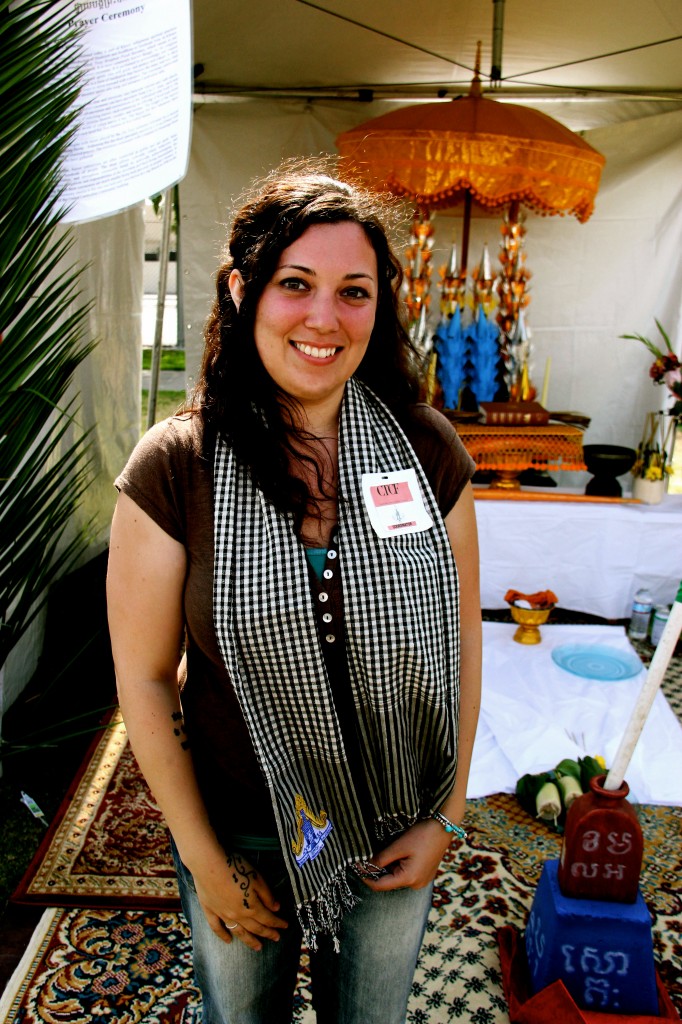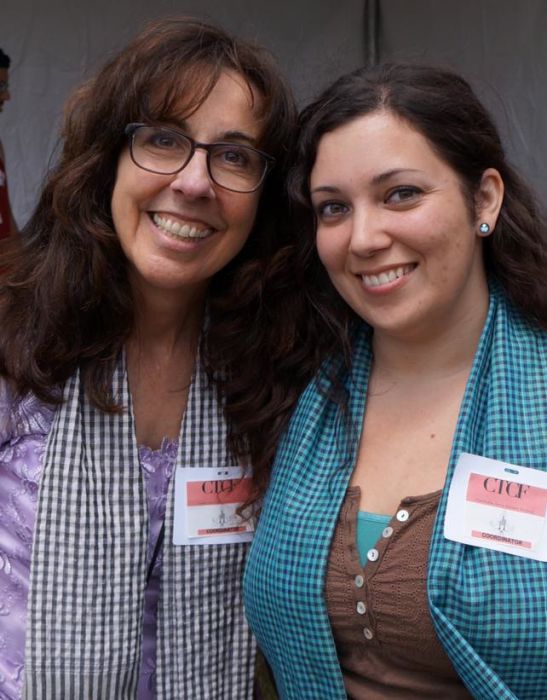Alexxandra Salazar, 24, has come a long way since graduating magna cum laude as a Ronald E. McNair Scholar in May of this year with a Bachelor of Arts in Anthropology from California State University, Dominguez Hills. In fact, the California native is about 8,000 miles away immersed in Cambodian culture.

Salazar was selected in spring by the nonprofit Teach Cambodia, Inc. to serve for a month as a volunteer and intern in Cambodia. Within days following commencement, she arrived at the South-East Asian village of Wat Bo in Siem Reap to assist Sambour Primary School with the undertaking of an international Peace Pals project, which teaches children about peace through various art activities.
Following the internship Salazar will continue on to Cambodia’s capitol city, Phnom Penh, where she will participate as a fellow at the Center for Khmer Studies in a six-week, full-immersion program to learn Khmer, the official language of Cambodia and the Cambodian diaspora.
A transfer student from Mt. San Jacinto College, Salazar’s interest in anthropology began unexpectedly while taking a general education course during her first semester at CSU Dominguez Hills in fall 2010.
“I was involved with different majors and then I took one anthropology class and I fell in love with it,” recalled Salazar, who went on to become very involved in the Department of Anthropology as a member of the Anthropology Club, and as an editorial board member and most recently the editor of the Electronic Student Journal of Anthropology.
As a culmination of a 2012 service-learning ethnographic fields method class (ANT 375), taught by Susan Needham, chair and professor of the anthropology department and a Cambodian cultural expert, Salazar assisted Needham with the organization of the Cambodia Town Culture Festival held annually in Long Beach, and through a 2013 independent study project she again assisted her mentor with research for the city’s Cambodian Community History and Archive Project.
“I was really attracted to the resilience of Cambodian culture and people,” Salazar remembered. “When I went to the first festival I was blown away by how strong the Cambodian community was. I thought it was cool how they were able and willing to put their culture on display, not only for their own community but also for mainstream Americans.”
Salazar, who earned first place at the 2013 Student Research Day in a behavioral and social sciences session for her presentation, “Moni Mekhala and Ream Eyso: Honoring the Spirits and Transmitting Culture through Ritual and Performance,” credited undergraduate opportunities for research and service-learning at CSU Dominguez Hills with preparing her for the work she is currently doing in Cambodia.
When the former Toro returns to America in August, she will undoubtedly bring with her a new level of expertise as she embarks on a fully funded master’s program in anthropology in the upcoming fall semester at Northern Illinois University (NIU).

Although Salazar, a first-generation university graduate, was awarded the CSU Chancellor’s Doctoral Incentive Program and was accepted into a Ph.D. program at the University of Wisconsin Madison–among other institutions that accepted her for master’s programs–she chose to postpone that pursuit for the opportunity to study at NIU’s Center for Southeast Asian Studies.
Under the mentorship of NIU associate professor of anthropology and Cambodian cultural expert Judy Ledgerwood, Salazar plans to focus on the Cambodian diaspora in the U.S. and the transmission of Cambodian culture, research Cambodian cultural events in the Chicago area, as well as study the city’s contemporary generation of Cambodian Americans and how they connect to their Cambodian heritage.
She plans to continue to research Cambodian culture, but she sees teaching anthropology at the university level–her ultimate goal–as having a broader impact.
“Teaching cultural anthropology, there’s a lot within the discipline that applies to all cultures,” Salazar pointed out. “As anthropologists we strive not to judge people in other cultures based on our own cultural frameworks but try to understand their behaviors and practices from their own cultural perspective.”
For more information on the CSU Dominguez Hills Anthropology program, visit www.nbs.csudh.edu/anthropology.